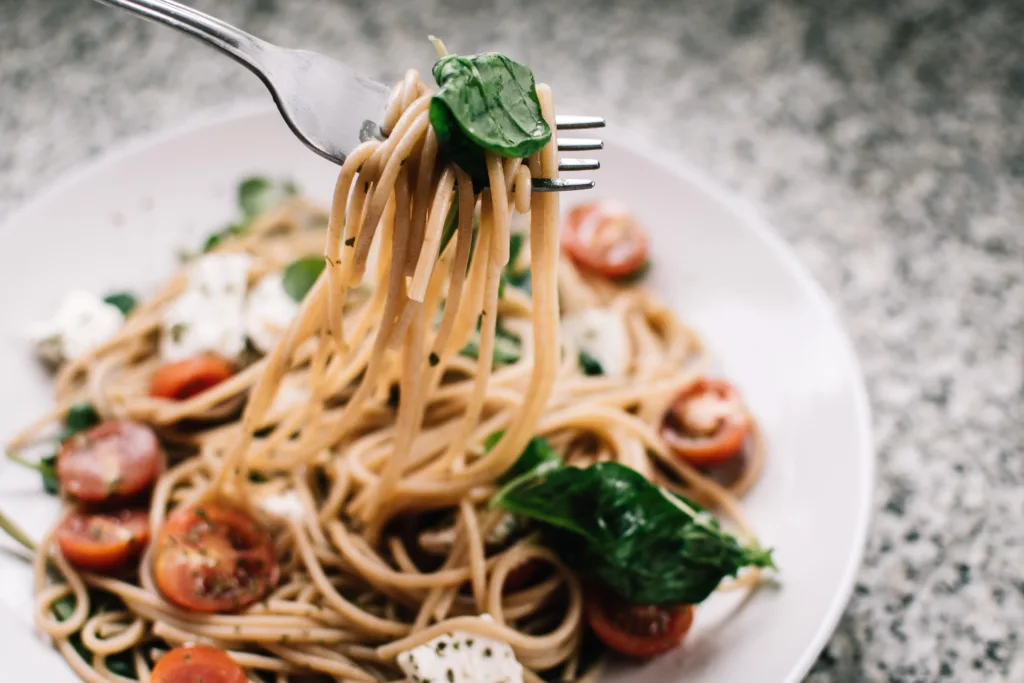Are you looking for an alternative to high FODMAP cheese that still has a mild, creamy flavor? Havarti cheese is an excellent choice for those on a low FODMAP diet who don’t want to miss out on the taste and texture of their favorite cheese. In this article, we’ll explore what makes Havarti cheese low FODMAP, as well as how to enjoy it in a variety of ways. We’ll also look at the potential health benefits of consuming Havarti cheese and how it compares to other types of cheese. So whether you’re looking for a mild, creamy flavor or just want to know more about how to incorporate Havarti into your diet, this article is sure to have something for you.
Yes, Havarti cheese is considered to be low FODMAP, meaning it is safe to eat for those following a low FODMAP diet.
How Havarti Cheese Affects IBS Symptoms
IBS, or irritable bowel syndrome, is a chronic condition that affects the large intestine. Although the exact cause of IBS is unknown, certain foods can trigger symptoms such as abdominal pain, cramping, diarrhea, and constipation. One food that may trigger IBS symptoms is cheese. Havarti cheese is a semi-soft cow’s milk cheese with a mild and slightly sweet flavor. It can be used to make sandwiches and melted dishes, as well as served alongside fruit or crackers. But how does Havarti cheese affect IBS symptoms?
Research suggests that dairy products like Havarti cheese may trigger diarrhea in people with IBS. This is because dairy contains lactose, which requires an enzyme called lactase to break it down in the small intestine. People with IBS have reduced levels of lactase due to an impaired intestinal lining, making it difficult for them to digest dairy products. As a result, eating Havarti cheese may lead to cramping and diarrhea in some people with IBS.
Furthermore, some research suggests that certain proteins found in cow’s milk can also cause digestive issues in people with IBS. The proteins casein and whey are present in most types of cow’s milk, including Havarti cheese. These proteins can cause inflammation in the gut and lead to symptoms like bloating and abdominal pain.
Therefore, if you have been diagnosed with IBS it is important to talk to your doctor about your dietary habits and whether or not you should limit your intake of Havarti cheese and other types of dairy products. Your doctor may recommend avoiding dairy altogether or limiting your intake of certain types of dairy products. Additionally, you may benefit from eating lactose-free versions of dairy products such as lactose-free Havarti cheese or taking supplements that contain the enzyme lactase before consuming any type of dairy product.
Click here to preview your posts with PRO themes ››
The Benefits of Eating Low Fodmap Cheese
Eating low Fodmap cheese can provide a number of benefits to people with digestive issues. Fodmaps are a group of carbohydrates found in many foods, including dairy products like cheese. People with irritable bowel syndrome (IBS) or other digestive disorders may find that eating low Fodmap cheese can help reduce symptoms like bloating, abdominal pain, and diarrhea. Low Fodmap cheese is also a great source of calcium and other nutrients that can help support overall health and well-being.
Low Fodmap cheeses are usually made from cow’s milk or goat’s milk, and contain fewer carbohydrates than regular cheeses. This makes them easier to digest for people with IBS or other digestive disorders. Additionally, low Fodmap cheeses are often lower in fat than regular cheeses, which can be beneficial for those trying to lose weight or maintain a healthy weight.
Low Fodmap cheeses come in a variety of flavors, textures, and forms so there is sure to be something that everyone can enjoy. From soft fresh cheese like ricotta to aged hard cheeses like cheddar and gouda, there are plenty of delicious options available. Low Fodmap cheese also makes a great addition to salads and sandwiches because it adds flavor without adding too many carbs or calories.
In addition to the digestive benefits of eating low Fodmap cheese, it is also an excellent source of calcium and other essential nutrients such as phosphorus, magnesium, zinc, and vitamin A. These nutrients are important for maintaining strong bones and teeth as well as supporting the immune system and overall health.
Eating low Fodmap cheese can be a great way for those with IBS or other digestive disorders to enjoy the taste of real cheese without worrying about exacerbating their symptoms. It is also an excellent source of essential nutrients that can help support overall health and well-being.
How to Incorporate Low Fodmap Cheese into Your Diet
If you have an intolerance to certain foods, such as lactose, it can be difficult to incorporate cheese into your diet. Low FODMAP cheese is a great option for those looking to enjoy the taste and texture of cheese without the added digestive discomfort. Low FODMAP cheese is made from cows’ milk that has been fermented and enzyme-treated, which reduces the amount of FODMAPs present in the cheese. This makes it easier for those with intolerances to digest.
The first step in incorporating low FODMAP cheese into your diet is to identify which cheeses are low in FODMAPs. The most common types of low FODMAP cheeses are cheddar, feta, mozzarella, ricotta, and goat cheese. Be sure to read labels carefully when purchasing low FODMAP cheeses as some brands may contain higher levels than others.
Click here to preview your posts with PRO themes ››
Once you have identified a type of low FODMAP cheese that you wish to include in your diet, you can begin experimenting with different recipes and ways of incorporating it into your meals. For example, cheddar can make a great addition to scrambled eggs or omelets while feta pairs nicely with salads or roasted vegetables. Ricotta can be used in pasta dishes or stuffed into vegetables like squash or peppers while mozzarella adds a creamy texture and flavor to sauces and pizzas.
Low FODMAP cheeses can also be enjoyed on their own as snacks or appetizers. Try pairing them with crackers or vegetables such as carrots or celery for an easy snack that is both tasty and nutritious. You can also create delicious appetizers by topping crackers with a combination of low-FODMAP cheeses such as cheddar and feta or mozzarella and ricotta.
Incorporating low-FODMAP cheeses into your diet can help you enjoy the flavor and texture of cheese without having to worry about digestive discomfort. It’s important to read labels carefully when selecting low-FODMAP cheeses so that you know which ones are best suited for your needs. With a little bit of experimentation, you’ll soon find delicious recipes that incorporate these types of cheeses into your meals for extra flavor and nutrition.
What Foods Should I Avoid if I Have IBS?
Irritable Bowel Syndrome (IBS) is a chronic condition that can cause uncomfortable symptoms like abdominal pain, bloating, and diarrhea. If you have IBS, it’s important to know what foods to avoid to reduce your symptoms. Some of the common foods to avoid if you have IBS include high-fat foods, spicy foods, caffeine, carbonated beverages, alcohol, processed foods, and certain fruits and vegetables.
High-fat foods can be difficult for the body to digest and can cause abdominal pain and discomfort in people with IBS. Foods such as fried food, red meat, dairy products like cheese and butter, and rich desserts should be avoided or eaten in moderation.
Spicy foods also tend to aggravate the symptoms of IBS. Hot sauces and spices can trigger painful cramping and diarrhea in people with sensitive digestive systems. If you have IBS, it’s best to avoid overly spicy dishes or season your food with milder spices such as basil or oregano instead of hot peppers or chili powder.
Caffeine is another food that should be avoided if you have IBS because it can act as a stimulant on the intestines and cause them to contract more quickly than normal. This can lead to pain and diarrhea in some people with IBS. Coffee, tea, energy drinks, soda, chocolate bars should all be limited or avoided altogether if you have this condition.
Carbonated beverages can also trigger abdominal pain in people with IBS because they contain gas that causes bloating and discomfort when released into the intestines. Sodas should be avoided entirely while other carbonated drinks like sparkling water are generally safe but should still be consumed in moderation.
Click here to preview your posts with PRO themes ››
Alcohol is another food that should be limited or avoided when living with IBS because it has been shown to aggravate symptoms like abdominal pain and diarrhea in some people with this condition. Beer is particularly troublesome for those with sensitive digestive systems so it’s best to steer clear of this type of drink altogether if possible.
Processed foods such as white breads, pastries, chips, crackers etc., often contain additives such as preservatives or artificial flavors which can irritate the intestines of those who are suffering from IBS and increase their symptoms significantly. Therefore these types of foods should be avoided whenever possible if you suffer from this condition.
Lastly certain fruits and vegetables have been known to worsen symptoms for those who suffer from irritable bowel syndrome due to their high fiber content which can irritate an already inflamed intestine causing bloating, gas and abdominal pain among other things. Common culprits include broccoli , cauliflower , Brussels sprouts , onions , garlic , peppers , apples etc., so these should all be eaten sparingly or avoided entirely if possible.
By following these guidelines it may help reduce your symptoms associated with irritable bowel syndrome so you can lead a more comfortable life without having to worry about your diet too much!

Is Dairy a Trigger Food for IBS?
For individuals with Irritable Bowel Syndrome (IBS), dairy products can be a trigger food. IBS is a chronic gastrointestinal disorder that can cause abdominal pain, bloating, gas, changes in bowel movements, and other symptoms. Researchers have not yet identified the exact cause of IBS but certain foods can worsen the symptoms. Dairy products are among those foods which can exacerbate IBS.
Dairy products contain lactose, a type of sugar found in milk and milk-based products. People with lactose intolerance lack an enzyme called lactase which is needed to digest lactose. This causes gas, bloating and other digestive problems when dairy is consumed. Some people with IBS may also be lactose intolerant, however others may find that dairy products worsen their symptoms even if they do not have an actual lactose intolerance.
Some people with IBS find that avoiding all dairy products helps alleviate their symptoms. Others may find that some dairy products such as yogurt or cheese do not aggravate their digestive issues as much as other dairy foods such as ice cream or milk. It is best to experiment and see which types of dairy work for you and which types make your symptoms worse.
If you think that dairy may be causing your IBS symptoms it is best to speak to your healthcare provider first before making any dietary changes. They may recommend an elimination diet or suggest trying a low-lactose diet to help determine if dairy is triggering your symptoms. It is important to note that eliminating certain foods can cause nutritional deficiencies so make sure you consult with your healthcare provider before making any drastic changes in your diet.

